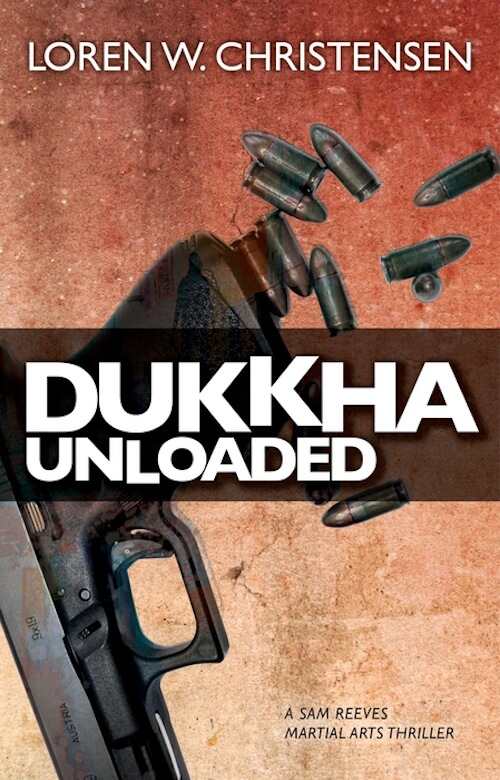Dukkha Unloaded
Dukkha Unloaded is a gripping martial-arts, detective story about fighting enemies inside and out.
Despite the Hollywood stereotype of trigger-happy cops, the truth is most men and women in law enforcement seldom draw a gun and even more rarely use deadly force. Those who do draw, fire, and kill don’t just go back to work the next day as if it were business as usual. There is a mental toll for the action, as well as psychiatric evaluations, to work through before returning to active duty. Dukkha Unloaded depicts police detective Sam Reeves not long after using deadly force, and returning to duty perhaps too soon. Loren W. Christensen infuses the narrative with realism and insight gained during his own experience in law enforcement and his many years as a martial arts instructor.
Dukkha Unloaded is part of a series of martial arts action novels centering on Reeves, a smart, capable, and sincere police officer in Portland, Oregon. In events preceding this book, this character had used deadly force, and is by no means recovered by the time he is called back to duty to investigate a series of extraordinarily violent hate crimes. In addition to media pressure surrounding the kill, and the loss of his old martial arts school to arson, Reeves tries to do his job—catching perpetrators of heinous crimes—despite never wanting to carry a gun again.
The world Christensen sets up is generally very believable. His understanding of police procedure, martial arts, Portland, and the troubled mind of a detective whose wounds are very raw creates a plausible story in a genre not known for being particularly realistic. In general, he eschews the more sensationalistic aspects of the action novel: it’s more about the fight between the darkness and the goodness within than it is about explosions, blood, and sex.
Christensen tells the story in first person, present tense. While this can create a feeling of immediacy and urgency, it makes a cumbersome storytelling vehicle here because—especially early on—there’s a significant amount of recounting of past events, meaning the reader switches back and forth from present tense to past. The transition back to present tense can be awkward. The author’s dialogue is clear and gives a good sense of character. He tends to overuse exposition, however, recapping details still very fresh. This slows the pace, delaying the next piece of the puzzle.
The action sequences are clear and written with authority, never becoming overblown. The strongest element of Dukkha Unloaded is in the emotional relationships between Reeves and his friends, colleagues and, most importantly, his sense of self. Dukkha means suffering, the first of the four noble truths in Buddhism. Unloaded, here, seems to reference the protagonist’s disdain for guns, but the title could just as well refer to the emotional unloading of suffering. In other words, it’s about Reeves recovering his sense of self.
Reviewed by
Jason Henninger
Disclosure: This article is not an endorsement, but a review. The publisher of this book provided free copies of the book and paid a small fee to have their book reviewed by a professional reviewer. Foreword Reviews and Clarion Reviews make no guarantee that the publisher will receive a positive review. Foreword Magazine, Inc. is disclosing this in accordance with the Federal Trade Commission’s 16 CFR, Part 255.

